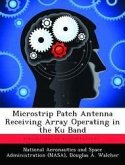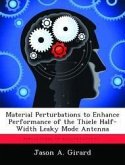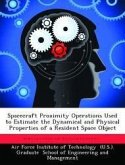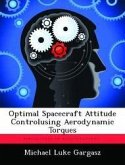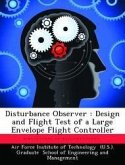Controller design for a spacecraft mounted flexible antenna is considered. The antenna plant model has a certain degree of uncertainty. Additionally, disturbances from the host spacecraft are transmitted to the antenna and need to be attenuated. The design concept explored herein entails feedforward control to slew the antenna. Feedback control is then used to compensate for plant uncertainty and to reject the disturbance signals. A tight control loop is designed to meet performance specifications while minimizing the control gains. Simulations are conducted to show that the integration of feedforward control action and feedback compensation produces better responses than the implementation of either individual control system. Integration results in lower gains and still meets the performance specifications. Critical plant parameters are varied to simulate the uncertainty in the nominal plant. The control system is then exercised on several variations of the nominal plant. A worst case plant is produced as a combination of the variations to the nominal plant. Simulations show that when the controller is implemented on the worst case plant, specifications are exceeded. The controller gains are reduced and the simulations are repeated so that the specifications are met but not exceeded; thus, proving that a reduction of plant uncertainty allows the reduction of the control gains.
Hinweis: Dieser Artikel kann nur an eine deutsche Lieferadresse ausgeliefert werden.
Hinweis: Dieser Artikel kann nur an eine deutsche Lieferadresse ausgeliefert werden.


